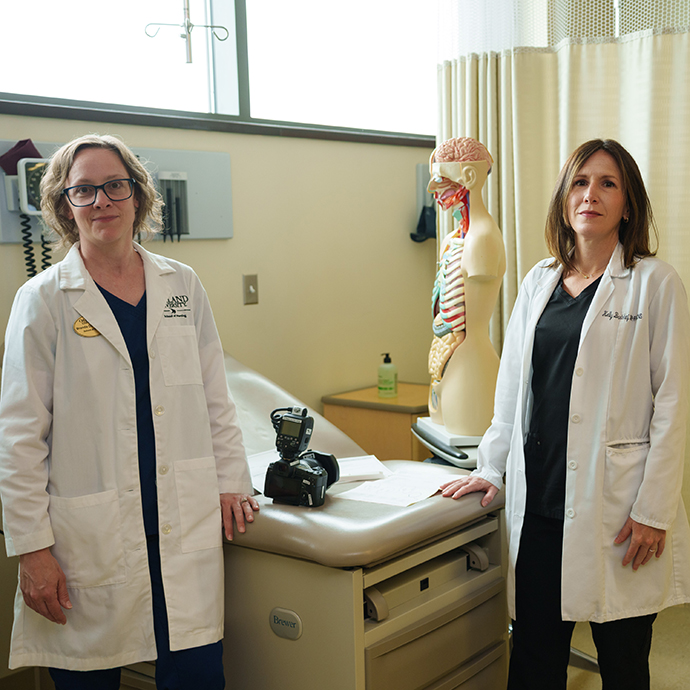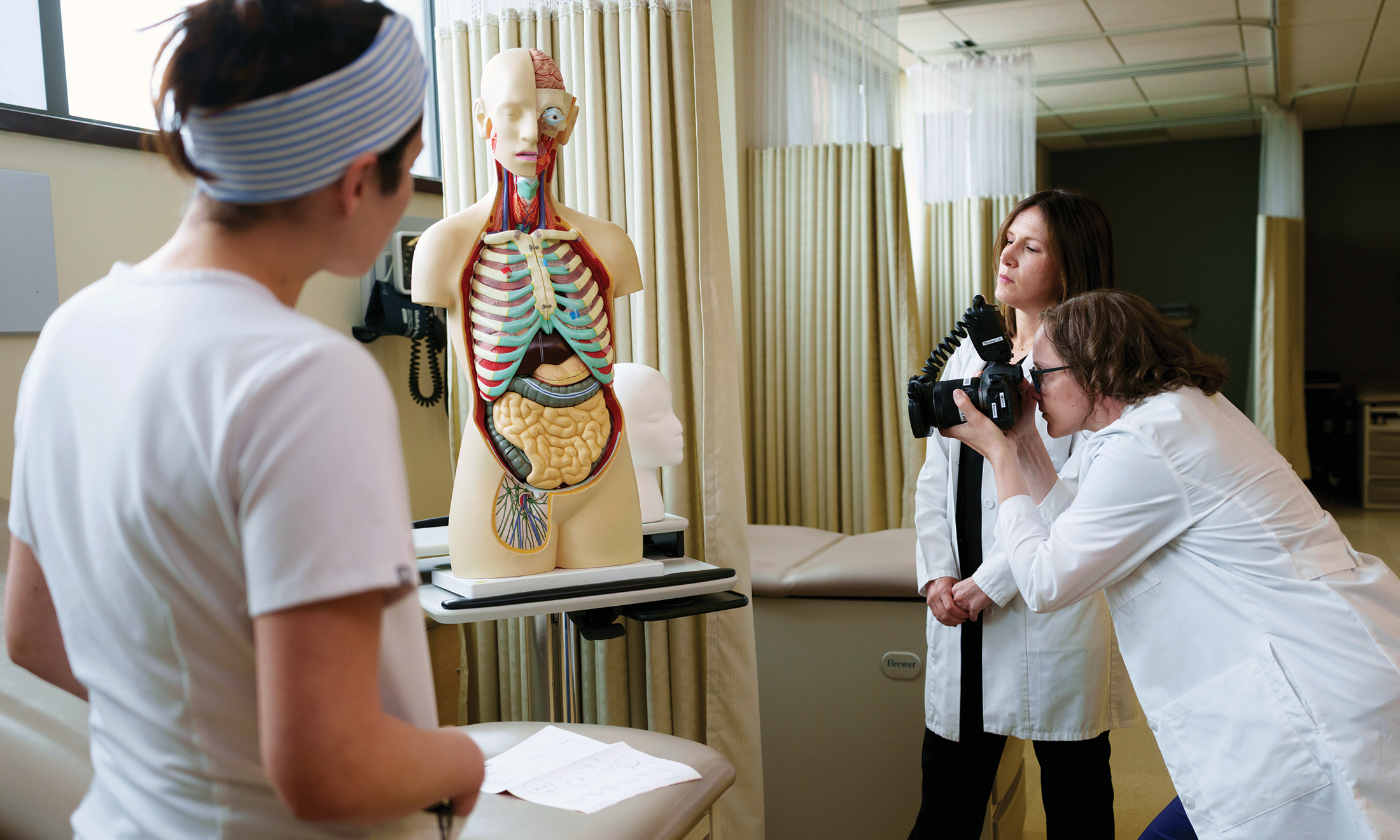Advocates for the Unheard
Forensic nursing professors advance education for nurses and community members
“Learning the aspects of forensic nursing is important for nurses within the community, and it is imperative to also teach the community about the resources and services available to them,” says Brenda Dzierzawski, SON ’19, director of the forensic nursing program at Oakland University.
 |
|---|
| Forensic Nursing Program Director Brenda Dzierzawski, SON ’19, (left) and Associate Professor Kelly Berishaj, DNP, SON ’13, (right) |
The forensic nursing program at Oakland University’s School of Nursing is advancing the education of future nurses, thanks to Dzierzawski and Associate Professor Kelly Berishaj, DNP, SON ’13. The program held its first classes in 2015, and since then has grown to train and educate 78 nurses (as of June 2025) who specialize in the care and treatment of survivors of sexual trauma, violence and maltreatment.
“Forensic Nursing education, or the care of patients who are victims and survivors of trauma, violence, and maltreatment, is not part of routine health care provider education,” says Berishaj. “Providing trauma-informed care to these vulnerable populations is something that nurses must seek out. That is why the FN program at OU is so important. We are the only FN program in the state and one of few in the country.”
“In order to minimize and prevent the effects of trauma, violence and maltreatment, our forensic nursing students complete clinical and service-learning experiences within the community,” explains Berishaj. “I feel really proud that we can continue to advance the specialty through our work at Oakland University and through community partners, like Turning Point.”
| Community Partnership with Turning Point |
|---|
| For 45 years, Turning Point Macomb has served the community by empowering survivors of domestic violence, sexual violence and human trafficking through their forensic nurse examiner program, 24-hour hotline, emergency shelter, first response advocacy, counseling and more. Learn more at turningpointmacomb.org.
“This program is successful not only because of strong educators but because of critical community partnerships like the one we have with Turning Point,” says Berishaj. “These partnerships and service-learning opportunities provide our students with clinical training and also gives us the opportunity to educate the community of interest on the FN specialty and specific needs that victims and survivors have when healing.” Turning Point also offers internships to OU nursing students, as well as students in social work and counseling programs. Additionally, a number of alumni can be found leading Turning Point’s mission, including CEO Sharman Davenport, Ph.D., CAS ’80, and Administrator of Clinical Forensic Nursing Services, Christina Boyland, SON ’18. “We have an additional 20 team members that are OU alumni,” says Boyland. “Of the nursing internships alone, we have hired 16 forensic nurse examiners directly through OU’s forensic nursing graduate program.” |
Beyond hands-on education, Dzierzawski and Berishaj also instill confidence in their students through direct instruction and participation. “I have seen education improve the way the students carry themselves and are able to share knowledge on the subjects they’ve learned,” says Dzierzawski.
“I wanted to develop the forensic nursing program at OU to help other nurses become educated in how to provide trauma-informed care and services to victims of violence and to better meet their health and legal needs,” says Berishaj.
Before coming to Oakland University, Berishaj worked in an urban, inner-city hospital for 13 years, caring for and seeing the struggles that victims of violence faced. “I wanted to help provide better care to them and our community,” she says, discovering that forensic nursing would offer her that opportunity.
Crossing paths at a nursing conference with Berishaj, Dzierzawski says she “was deeply interested in addressing the gaps in care” she experienced as a critical care nurse and was motivated “to pursue further training and growth in the field of forensic nursing.” Dzierzawski was among one of the first cohorts to enter the program and began teaching at OU a few years after graduating.
“Throughout my time in the forensic nursing program, I realized just how large these gaps were,” says Dzierzawski. “I now feel a strong sense of responsibility to advocate for those whose voices often go unheard.”
More Like This: |


 September 22, 2025
September 22, 2025
 By Kelli M. Warshefski
By Kelli M. Warshefski
